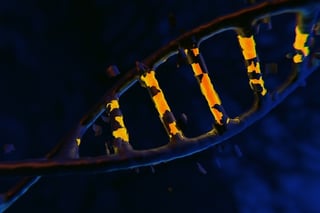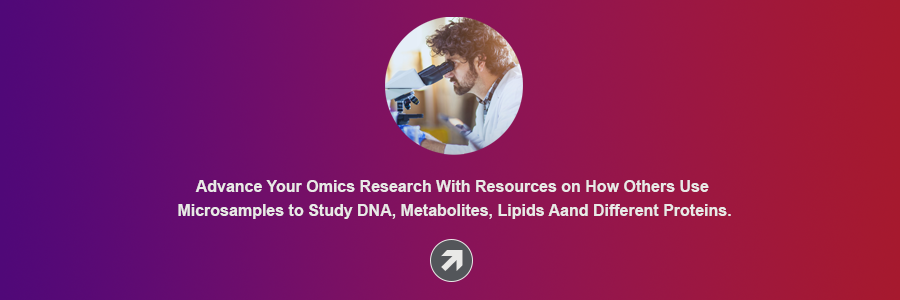Share this
Unlocking the Power of Rapid Whole-Genome Sequencing for Early Diagnosis
by Neoteryx Microsampling on Feb 20, 2018 9:09:00 AM
 Early Diagnosis is not just beneficial—it's essential for improving patient outcomes, managing care more effectively, and reducing healthcare costs. Recent advancements in rapid Whole-Genome Sequencing (WGS) offer promising prospects for achieving quicker and more accurate diagnoses, especially in critical care settings.
Early Diagnosis is not just beneficial—it's essential for improving patient outcomes, managing care more effectively, and reducing healthcare costs. Recent advancements in rapid Whole-Genome Sequencing (WGS) offer promising prospects for achieving quicker and more accurate diagnoses, especially in critical care settings.
Insights from a Pioneering Clinical Study on Rapid WGS
A groundbreaking study at Rady Children's Institute for Genomic Medicine highlights the significant impact of early genetic Diagnosis through rapid WGS. Conducted with 98 neonatal intensive care unit (NICU) patients, the study involved collecting blood samples within the first 48-72 hours of admission. The rapid WGS was performed at 40-45X coverage and completed within 3-7 days, a timeframe crucial for influencing acute care decisions.
Transformative Findings and Medical Interventions
The results were profound:
- Genetic Diagnosis Achieved: 34 out of 98 infants received a genetic diagnosis from rapid WGS.
- Enhanced Medical Management: In about 80% of diagnosed cases, immediate changes to medical management were implemented, including:
- Avoiding unnecessary surgeries.
- Optimizing medication to target underlying conditions more effectively.
- Swift integration of palliative care where necessary.
These interventions not only improved patient care but also resulted in considerable cost savings. In the initial 42 cases, rapid WGS facilitated an estimated $1.3 million in net savings compared to standard care procedures.
Expansion and Future Applications
Encouraged by these outcomes, collaborations have formed with children's hospitals in Minnesota and California to expand this research. These partnerships aim to explore the scalability, clinical efficacy, and cost-effectiveness of rapid WGS across diverse healthcare settings.
Enhancing WGS with Microsampling Technology
Integrating microsampling technology may further streamline the genetic testing process. Microsampling offers several advantages:
- Reduces the need for large storage spaces and complex sample handling.
- May ensure high stability and preservation of DNA and RNA.
- Potentially decreases the likelihood of sample reprocessing due to degradation.
By employing DNA or RNA microsamples for WGS, laboratories may enhance operational efficiency, expand research accessibility, and expedite the diagnostic process—transforming patient care in genetics-focused medicine.
Share this
- Microsampling (206)
- Research, Remote Research (119)
- Venipuncture Alternative (105)
- Clinical Trials, Clinical Research (83)
- Mitra® Device (73)
- Therapeutic Drug Monitoring, TDM (51)
- Dried Blood Spot, DBS (39)
- Biomonitoring, Health, Wellness (30)
- Infectious Disease, Vaccines, COVID-19 (24)
- Blood Microsampling, Serology (23)
- Omics, Multi-Omics (21)
- Decentralized Clinical Trial (DCT) (20)
- Specimen Collection (18)
- Toxicology, Doping, Drug/Alcohol Monitoring, PEth (17)
- Skin Microsampling, Microbiopsy (14)
- hemaPEN® Device (13)
- Preclinical Research, Animal Studies (12)
- Pharmaceuticals, Drug Development (9)
- Harpera Device (7)
- Industry News, Microsampling News (5)
- Antibodies, MAbs (3)
- Company Press Release, Product Press Release (3)
- Environmental Toxins, Exposures (1)
- July 2025 (1)
- May 2025 (1)
- April 2025 (2)
- December 2024 (2)
- November 2024 (1)
- October 2024 (3)
- September 2024 (1)
- June 2024 (1)
- May 2024 (1)
- April 2024 (4)
- March 2024 (1)
- February 2024 (2)
- January 2024 (4)
- December 2023 (3)
- November 2023 (3)
- October 2023 (3)
- September 2023 (3)
- July 2023 (3)
- June 2023 (2)
- April 2023 (2)
- March 2023 (2)
- February 2023 (2)
- January 2023 (3)
- December 2022 (2)
- November 2022 (3)
- October 2022 (4)
- September 2022 (3)
- August 2022 (5)
- July 2022 (2)
- June 2022 (2)
- May 2022 (4)
- April 2022 (3)
- March 2022 (3)
- February 2022 (4)
- January 2022 (5)
- December 2021 (3)
- November 2021 (5)
- October 2021 (3)
- September 2021 (3)
- August 2021 (4)
- July 2021 (4)
- June 2021 (4)
- May 2021 (4)
- April 2021 (3)
- March 2021 (5)
- February 2021 (4)
- January 2021 (4)
- December 2020 (3)
- November 2020 (5)
- October 2020 (4)
- September 2020 (3)
- August 2020 (3)
- July 2020 (6)
- June 2020 (4)
- May 2020 (4)
- April 2020 (3)
- March 2020 (6)
- February 2020 (3)
- January 2020 (4)
- December 2019 (5)
- November 2019 (4)
- October 2019 (2)
- September 2019 (4)
- August 2019 (4)
- July 2019 (3)
- June 2019 (7)
- May 2019 (6)
- April 2019 (5)
- March 2019 (6)
- February 2019 (5)
- January 2019 (8)
- December 2018 (3)
- November 2018 (4)
- October 2018 (7)
- September 2018 (6)
- August 2018 (5)
- July 2018 (8)
- June 2018 (6)
- May 2018 (5)
- April 2018 (6)
- March 2018 (4)
- February 2018 (6)
- January 2018 (4)
- December 2017 (2)
- November 2017 (3)
- October 2017 (2)
- September 2017 (4)
- August 2017 (2)
- July 2017 (4)
- June 2017 (5)
- May 2017 (6)
- April 2017 (6)
- March 2017 (5)
- February 2017 (4)
- January 2017 (1)
- July 2016 (3)
- May 2016 (1)
- April 2016 (2)



No Comments Yet
Let us know what you think